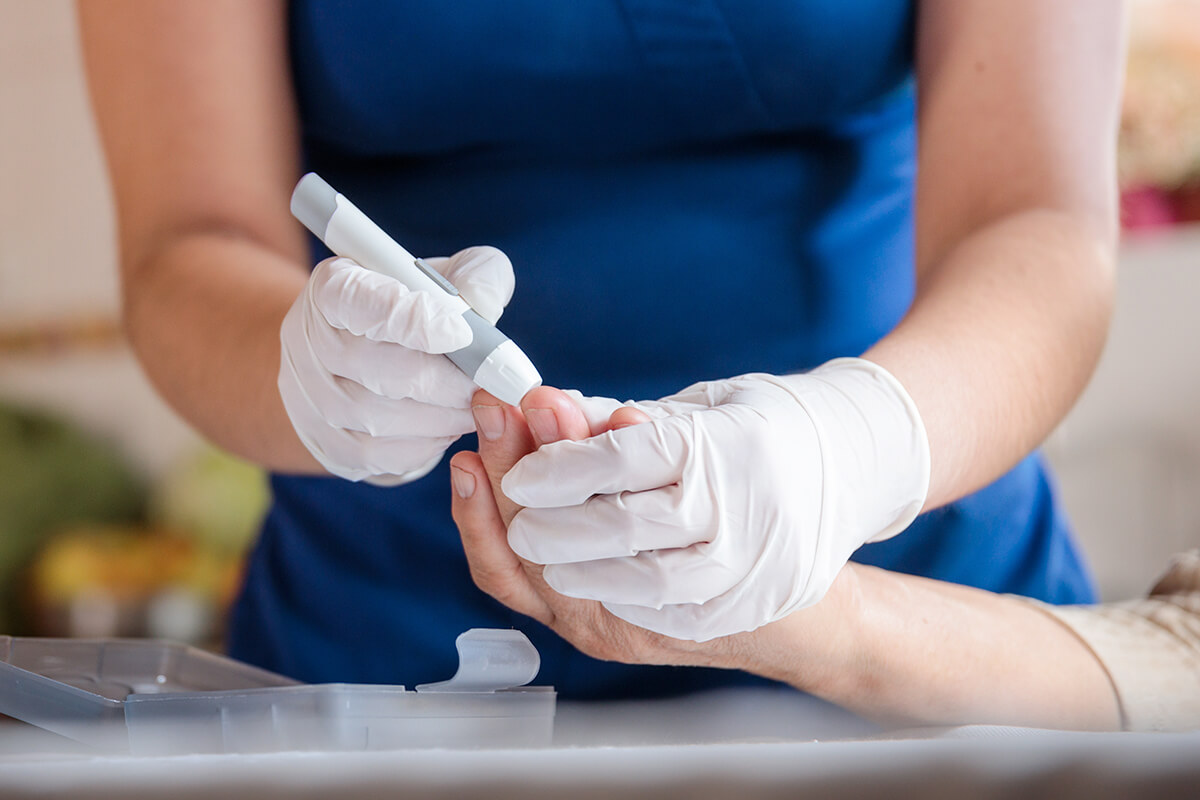Services
Diabetes Management
Helping you take control of your health

Diabetes is a serious condition that can lead to life-threatening complications such as heart disease, kidney failure, blindness, and even amputations. At Adventist Health Tillamook, we can help you prevent or manage diabetes to avoid these potential consequences.
Knowledge is power over diabetes
While diabetes is potentially fatal, you can prevent it or live with it as long as you are vigilant about your diet and lifestyle choices. The first step is to schedule an annual exam with your primary care provider to discuss your risk level and have a blood test to measure your blood sugar levels.
If you’re diagnosed with diabetes or pre-diabetes, your provider and our diabetes educators will work together to provide the education, services and treatment you need to protect yourself from serious harm.
Treatment can include lifestyle changes, medication, or insulin therapy. Regular checkups are also essential to manage your condition and prevent complications. Together we can help you manage your diabetes, so you can live a healthier and fuller life with fewer complications.
If you do not have a primary care provider, use our physician finder to choose a provider near you.
Recognizing the warning signs
Being aware of the early symptoms of diabetes is key to early detection. Common signs include:
Frequently asked questions
Don’t wait to get the knowledge you need. Begin now by viewing the answers to commonly asked questions.
What puts me at a higher risk of diabetes?
You may be at higher risk of diabetes if you:
- Are over 40 years of age
- Are overweight
- Have a history of diabetes
- Have high blood pressure
- Have given birth to a baby weighing more than 9 pounds
- Have had diabetes during pregnancy
- Are African American, Hispanic/Latino American, American Indian, Asian American, or Pacific Islander
- Have the stress of an illness or injury
What are the different types of diabetes?
Diabetes is categorized into three main types:
- Type 1 diabetes, often diagnosed in children and adolescents, requires insulin therapy as the body cannot produce enough insulin.
- Type 2 diabetes, more common in adults, results from insulin resistance and requires lifestyle changes and blood sugar monitoring.
- Gestational diabetes occurs during pregnancy and usually resolves after delivery, but it increases the risk of developing Type 2 diabetes later.
How is diabetes diagnosed and treated?
Your healthcare provider may use a glycated hemoglobin (A1C) test to diagnose diabetes, measuring your average blood sugar levels over the past two to three months. If diagnosed, treatment begins immediately and may include blood sugar monitoring, insulin therapy, or medication, with lifestyle changes playing a key role in management. For those with prediabetes, creating a diet and exercise plan with your care team can help prevent the progression to Type 2 diabetes.
Why are regular checkups important?
Regular checkups are essential for managing diabetes effectively and preventing complications. These visits allow your healthcare team to monitor your blood sugar levels, adjust medications, and assess your overall health. Routine exams, including A1C tests, eye screenings, dental exams, and kidney function tests, help detect and address potential issues early, ensuring comprehensive care for your well-being.
Our locations
Hospital
Adventist Health Tillamook
1000 Third Street
Tillamook, Oregon 97141
Primary Care
Family Health: Adventist Health
1011 Third Street
Tillamook, OR 97141
Primary Care
Primary Care: Adventist Health
1005 Cougar Street
Vernonia, OR 97064
Primary Care
Primary Care: Adventist Health
1100 Third Street
Tillamook, OR 97141
Primary Care
Primary Care: Adventist Health
38505 Brooten Road, Suite A
Pacific City, OR 97135
Primary Care
Primary Care: Adventist Health
10445 Neahkahnie Creek Road
Manzanita, OR 97130
Primary Care
Primary Care: Adventist Health
200 SE Highway 224
Estacada, OR 97023

